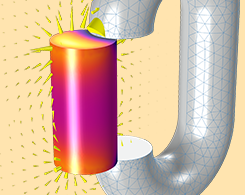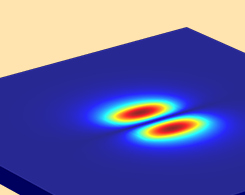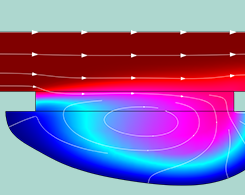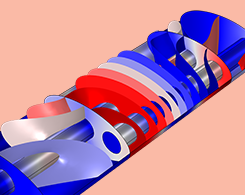Search Results

Advancing Additive Manufacturing with Sequential Simulations
In some ways, additive manufacturing is like sewing or weaving. We talk to a professor of additive manufacturing about how sequential simulations can be used to analyze and optimize the process.

Modeling the Flow of Ice in COMSOL Multiphysics®
The dynamics of glaciers are a complex (and “cool”) subject to study. One method is by using fluid flow simulation to analyze the flow of ice, from accumulation to ablation.

Modeling Ferromagnetic Materials in COMSOL Multiphysics®
Get a comprehensive guide to modeling ferromagnetic materials in COMSOL Multiphysics®, including an introduction to the theory and a series of useful animations.

Keynote Video: Using COMSOL Server™ for Product Development
Watch an engineer in the materials science industry discuss the use of simulation applications and COMSOL Server™ to accelerate and optimize his company’s product development workflow.

How to Model Optical Anisotropic Media with COMSOL Multiphysics®
Erasmus Bartholinus first observed the optical effect of birefringence in 1669. Today, you can observe this effect with a specialized modeling approach for optical anisotropic media.

How to Model Wet Chemical Etching in COMSOL Multiphysics®
Wet chemical etching was one of Rembrandt’s favorite methods for creating self-portraits. Now, it’s used by engineers to produce integrated circuits, MEMS devices, and pressure sensors.

Award-Winning Papers and Posters: COMSOL Conference 2017 Boston
The COMSOL Conference 2017 Boston featured over 100 interesting and innovative presentations from COMSOL Multiphysics® users about their current work. 6 of these projects took home awards.

Evaluating the Effect of Shell Thickness on Muffler Performance
Guest blogger Linus Fagerberg from Lightness by Design follows up a previous post with a discussion of one design consideration for the radiated sound in a muffler design: shell thickness.
